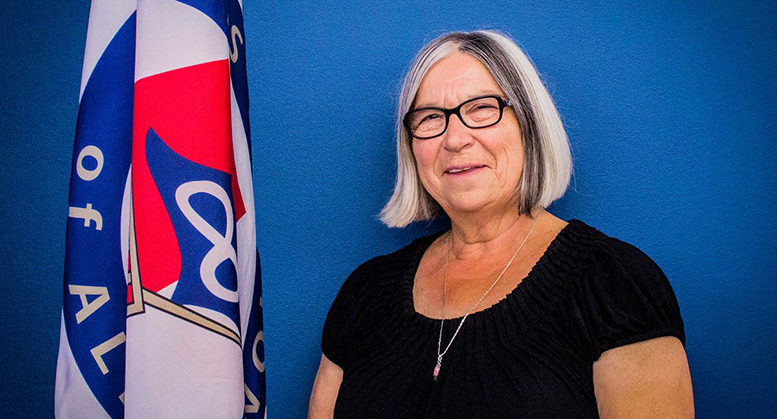by Jeremy Appel, Local Journalism Initiative Reporter
(ANNews) – The Métis Nation of Alberta and Treaty 6 First Nations have denounced the province’s proposed K-6 curriculum due to its erasure of Indigenous history.
The Métis Nation of Alberta, citing “monumental concerns about the Euro-American colonial undertones,” called on the government to re-write the curriculum with input from them and other Indigenous communities, a call echoed by the Confederacy of Treaty 6 First Nations.
The nation says its input on the curriculum, as well as that of their affiliated Rupertsland Institute, was mostly ignored.
“For there to be true inclusivity in the curriculum, representation from many voices must exist at every level of the curriculum-making process and that includes Métis voices,” MNA president Audrey Poitras said in a statement.
“Our citizens were shocked, and we are disheartened, to see our input and collaboration reduced to nothing more than a side-note in the draft that was presented to the public. The tone of the curriculum carries a Eurocentric-American point of view that effectively eliminates the voice and history of the Métis Peoples in Alberta.”
Poitras wrote a letter to Education Minister Adriana LaGrange dated March 30 expressing these concerns, as well as dismay at a lack of transparency on the ministry’s part.
“This is another example of Alberta’s continued colonial practice over Métis peoples,” she says. “The secretive approach under which this process was taken undermines the collective approach valued by our communities and it is unacceptable.”
The Confederacy of Treaty 6 Nations says the curriculum upgrade was a missed reconciliation opportunity, calling its contents a “Eurocentric, American-focused, Christian-dominant narrative that perpetuates rather than addresses systemic racism and falls far short of providing a balanced, nuanced perspective on Treaty 6 First Nations history and culture.”
Treaty 6 leaders say there’s much work to be done to bring the curriculum in line with the tenets of the Truth and Reconciliation Commission and United Nations Declaration on the Rights of Indigenous Peoples.
“A history of Alberta that does not begin with the rich and deep histories of the Treaty First Nations and does not accurately portray how we have survived and thrived to this day, is a faulty and incomplete one,” said Treaty 6 Grand Chief Watchmaker in a statement.
Elder Richard Lighting of the Ermineskin Tribe, a residential school survivor, says the curriculum demonstrates “dominant society doesn’t have a clue about us and our history and that needs to change.”
“Change is brought on with education,” said Lighting. “Our history needs to be a part of this curriculum, it needs to be inclusive so we understand one another.”
Justin Marshall, a spokesperson for Education Minister Adriana Lagrange, told the Edmonton Journal that Indigenous leaders’ feedback was welcome and that the curriculum includes the oral traditions and stories of the Métis people,in addition to units on topics like the travois, traditional knowledge, the fur trade, Louis Riel, and the Red River and North West resistance.
The curriculum incorrectly states the last residential school in Canada was closed in the 1970s. This was in fact when the last residential school in Alberta was closed, while the country’s last residential school was shut down in 1996.
Marshall told the Journal this error will be fixed in the final version.
As far back as 2018, Premier Jason Kenney promised to put the curriculum update that was written while the NDP was in power “through the shredder,” accusing it without evidence of political bias.
In addition to its alleged anti-Indigenous bent, Kenney’s curriculum has been criticized for plagiarizing Wikipedia and depending on outdated education methods that emphasize memorization over critical thinking.
On social media, opposition leader Rachel Notley agreed with the Indigenous communities that the new curriculum “openly violates the Truth and Reconciliation Commission”.”
“Clearly, the Premier needs to pump the brakes on this awful work immediately and get back to the table with Indigenous leaders,” said Notley.
The curriculum is slated to be piloted in select schools this fall, with a goal for full implementation in all classrooms by September 2022.
However, Edmonton Public School Board Superintendent Darrel Robertson announced on April 1 that “due to the continued impacts of the COVID-19 pandemic, our Division will not be piloting the draft curriculum next school year.”
He cites the need for “continuity of learning and family choice” with in-person instruction and online learning as one reason.
He also states that “at this time, our Division will take time to thoughtfully review the curriculum materials and provide feedback to Alberta Education.”
Edmonton Catholic Schools also indicated that they need time to review the materials and will not commit to piloting the curriculum in the fall.



Be the first to comment on "Treaty 6 Nations & MNA call for curriculum re-write – EPSD will not pilot the program this fall"